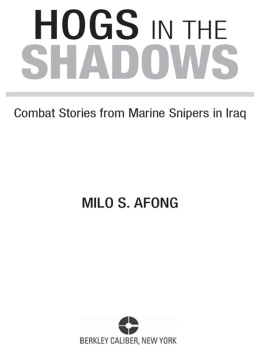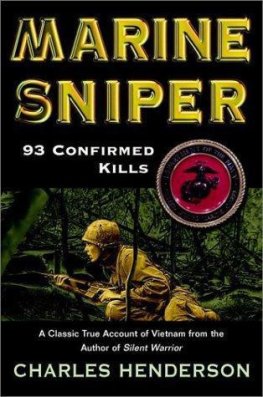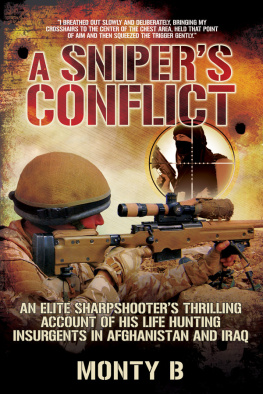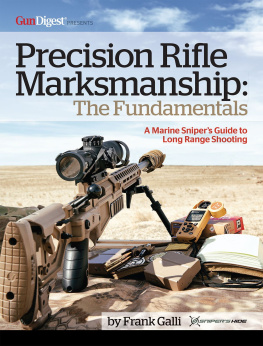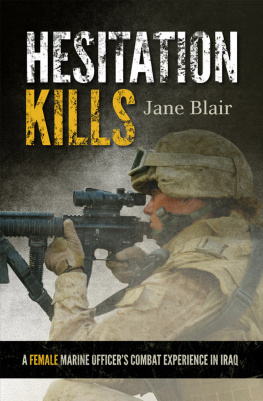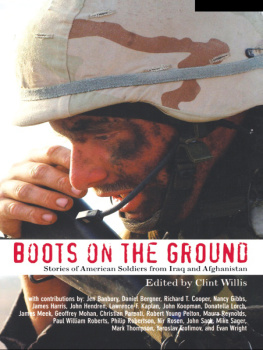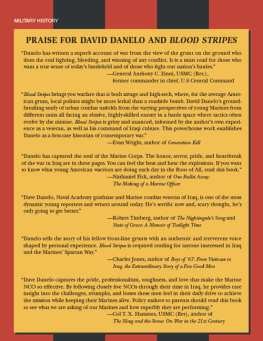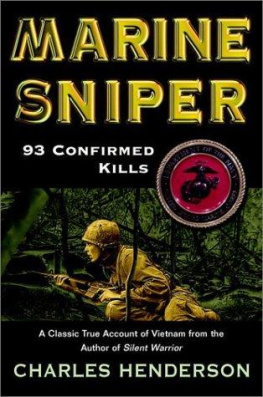HOGS IN THE SHADOWS
Combat Stories from Marine Snipers in Iraq
MILO S. AFONG

THE BERKLEY PUBLISHING GROUP
Published by the Penguin Group
Penguin Group (USA) Inc.
375 Hudson Street, New York, New York 10014, USA Penguin Group (Canada), 90 Eglinton Avenue East, Suite 700, Toronto, Ontario M4P 2Y3, Canada (a division of Pearson Penguin Canada Inc.) Penguin Books Ltd., 80 Strand, London WC2R 0RL, England Penguin Group Ireland, 25 St. Stephens Green, Dublin 2, Ireland (a division of Penguin Books Ltd.) Penguin Group (Australia), 250 Camberwell Road, Camberwell, Victoria 3124, Australia (a division of Pearson Australia Group Pty. Ltd.) Penguin Books India Pvt. Ltd., 11 Community Centre, Panchsheel Park, New Delhi110 017, India Penguin Group (NZ), 67 Apollo Drive, Rosedale, North Shore 0632, New Zealand (a division of Pearson New Zealand Ltd.) Penguin Books (South Africa) (Pty.) Ltd., 24 Sturdee Avenue, Rosebank, Johannesburg 2196, South Africa
Penguin Books Ltd., Registered Offices: 80 Strand, London WC2R 0RL, England
This book is an original publication of the Berkley Publishing Group.
The publisher has no control over and does not assume any responsibility for author or third-party websites or their content.
Copyright 2007 by Milo Afong
All rights reserved.
No part of this book may be reproduced, scanned, or distributed in any printed or electronic form without permission. Please do not participate in or encourage piracy of copyrighted materials in violation of the authors rights. Purchase only authorized editions.
BERKLEY CALIBER and its logo are trademarks of Penguin Group (USA) Inc.
Library of Congress Cataloging-in-Publication Data
Afong, Milo S.
HOGs in the shadows: combat stories from Marine snipers in Iraq / by Milo S. Afong.
p. cm.
Includes bibliographical references.
ISBN: 978-1-1012-0750-5
1. SnipersUnited StatesBiography. 2. Iraq War, 2003Personal narratives, American. 3. United States. Marine CorpsBiography. 4. United States. Marine CorpsHistoryIraq War, 2003 I. Title.
DS79.76.A34 2007
956.7044'342dc22 2006102094
Dedicated to those who have served in the community
Past, Present, and Future
Contents
If you want to quit, all you have to do is stop and get into the Humvee! yelled a sergeant from behind me. The temptation crossed my mind. I was tired, hungry, and already drenched in sweat. But knowing that I wouldnt be able to live with myself if I quit, I let my mind drift to happier times while misery set into my body.
At four in the morning on the island of Okinawa, Japan, the humidity was in full effect and the sun hadnt even risen. Our morning exercise was an eight-mile run and twenty-two marines, including myself, each carried an M16 and a pack filled with a sandbag and other equipment. In two columns, we ran on a paved road as the sound of insects chirping filled the jungles around us.
Im done with this! I heard a marine say from the front of the formation, and he slowed to a walk while we passed him.
Another one bites the dust, said one of the sergeants leading the run.
At least hes going to get some sleep today, I thought. As for the rest of us, the day had just begun.
We were five days into the battalion scout/sniper platoon indoctrination, with one week to go. Thirty-nine marines had arrived with the intention of being in the platoon, but over a five-day span, seventeen decided that it wasnt important. It was easy for me to understand why they quit, considering that we hadnt gotten more than four hours of sleep each night. And we spent half the day doing exercises. We ran everywhere we went, took tests every morning and evening, and this was the easy week, because the next week would be in the field.
Back on the road, one of the sergeants barked, I dont want to hear anyones boots hitting the ground. Thats a target indicator and itll give your position away to the enemy! Hearing that, I knew that my understanding of tactics needed to change. In the infantry we moved in thirteen-man squads and were taught never to run from the enemy. But in a scout/sniper platoon, we operated in two-or four-man teams, and we might one day find ourselves escaping from a numerically superior force.
One week later, fourteen of us were selected into the scout/sniper platoon. Out of the thousand-plus marines in the battalion, we were the eyes, ears, and trigger finger for the battalion commander. Most of us thought the hard part was over, but little did we know that it was just the beginning.
Like so many other marines, this was my first experience of scout/sniper operations. It had begun with indoctrination and once passing, living the miserable life of a PIG. Then there were the hundreds of hours spent training and preparing for scout/sniper school with one goal in mind, to become a HOG. And finally the triumph of graduating sniper school, with hopes of performing in combat. All together its a continuous cycle with subtle changes, but in the end the process remains the same.
Marines who desire to become a scout/sniper in an infantry battalion first go through a screening and then a selection process. The screening is a set of basic requirements, and as a whole, the Marine Corps has set standards about who is eligible to be in a scout/sniper platoon. Individual battalions may or may not be lenient in the requirements, depending on the need for personnel. Also, the prospective sniper must go though indoctrination.
Indoctrination, otherwise known as an indoc, is a selection process that the current snipers hold to select the next group of potential snipers. The length of the indoc may vary from battalion to battalion, but one thing each has in common is that it is a very grueling process. For potential candidates, an indoc may be the toughest thing they have done while in the marines, but to those who get selected, its just the beginning. During this time, the potential candidates are up hours before the crack of dawn and are released hours after sundown. In between are physical exercises and tests. The tests are daily, and the process is very physically and mentally demanding. Once most individuals get the sense of how a sniper operates, they realize how unglamorous the job is and choose not to go any farther with the indocrather, they drop out at their own request.
Because a marine has no training as a sniper, during indoctrination he is known as a SLUG, an acronym for Slow, Lazy Untrained Gunman. The time spent as a SLUG is overwhelming for many, and those who fail an indoc carry the name back to their platoons. Those who are selected to join a scout/sniper platoon are given another namePIG.
Once in a scout/sniper platoon, the marine receives the honorable name of PIG, meaning Professionally Instructed Gunman. The name explains that the marine is worthy to receive the training to become a sniper. Being a new PIG is probably the worst time physically and mentally for a potential sniper, because he has an enormous amount of information and tactics to absorb and will probably learn most of it through pain and repetition. Every marine who becomes part of the scout/sniper platoon has spent time as a PIG, but in the sniper community, he is not yet considered to be a marine scout/sniper. Although there are PIGs with more experience and knowledge about sniping than some school-trained snipers, every PIG aspires to become a HOG.
A HOG is a Hunter of Gunmen and is the only one of the three designations to be considered a marine scout/sniper. To become a HOG, a PIG must attend and pass a marine division scout/sniper school, and for verification, the school keeps a record of every class and marine who has passed. Marine scout/sniper school is so difficult that its not uncommon for a marine to keep the title PIG his entire time in a platoon, because he may never pass the school or may never have the opportunity to attend one. Once a PIG graduates scout/sniper school he receives the title of HOG and the current military occupation specialty of 0317, which is the only designator for scout/snipers. (The previous MOS was 8541.) He also receives a 7.62 mm bullet as a necklace. This bullet is known as a HOGs tooth and is to always be on the sniper. It is a charm, meaning that it is the only bullet meant for that marine, and in combat, no other sniper will have a bullet for him. The new HOGs will operate in the battalion as the snipers and spotters. They gain valuable experience by performing missions for the units they support.

